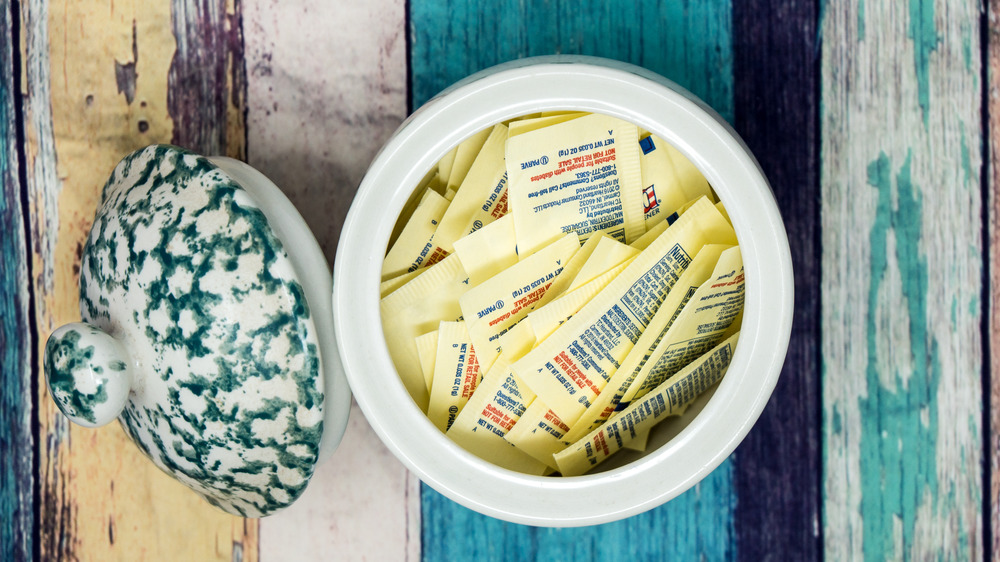Should Kids Consume Artificial Sweeteners?
It can be a battle to keep your kids on a healthy diet — especially picky eaters. Sugar is a particularly tricky situation, as it is hidden in many foods you would not expect. In fact, the American Academy of Pediatrics says 17 percent of calories in kids' diets comes from sugar, most of which comes from beverages like juices and soda with added sugar (via Cleveland Clinic).
There are ways to sweeten foods artificially to avoid added sugars, but you may be wondering if doing so really is the smarter alternative. Artificial sweeteners like aspartame, acesulfame-K, neotame, saccharine, and sucralose are so highly concentrated, only tiny amounts are needed to act as a sweetener (via Eat Right).
The limit for these artificial sweeteners is much more than the average child would ever consume. To reach the safe consumption limit, a 40 pound child would need to use 24 packets of aspartame or drink four 12-ounce cans of diet soda every day, according to Eat Right.
Reasons to limit sugar and artificial sweeteners
Artificial sweeteners can also be beneficial for those trying to lose weight. Some studies have shown a link between artificial sweeteners and short-term weight loss or weight stability (via the Cleveland Clinic).
But parents should still be wary of the amount of sugar-sweetened or sugar-alternative drinks their child is consuming. Studies have also shown that artificial sweeteners can have a negative effect on the bacteria in your gut, according to Cleveland Clinic. Experts say children should have no more than one or two 8-ounce cups of beverages with non-nutritive sweeteners per day.
Consuming artificial sweeteners occasionally should be fine for most children, however, there are instances where children should avoid artificially-sweetened products. People with phenylketonuria, or PKU, are not capable of metabolizing phenylalanine, an amino acid in aspartame, so they should avoid aspartame (via Eat Right).
More research is needed to analyze the link between artificial sweeteners and our health, but prioritizing a diet with less sugar and artificial sweeteners can lead to a healthier lifestyle for both you and your family.


